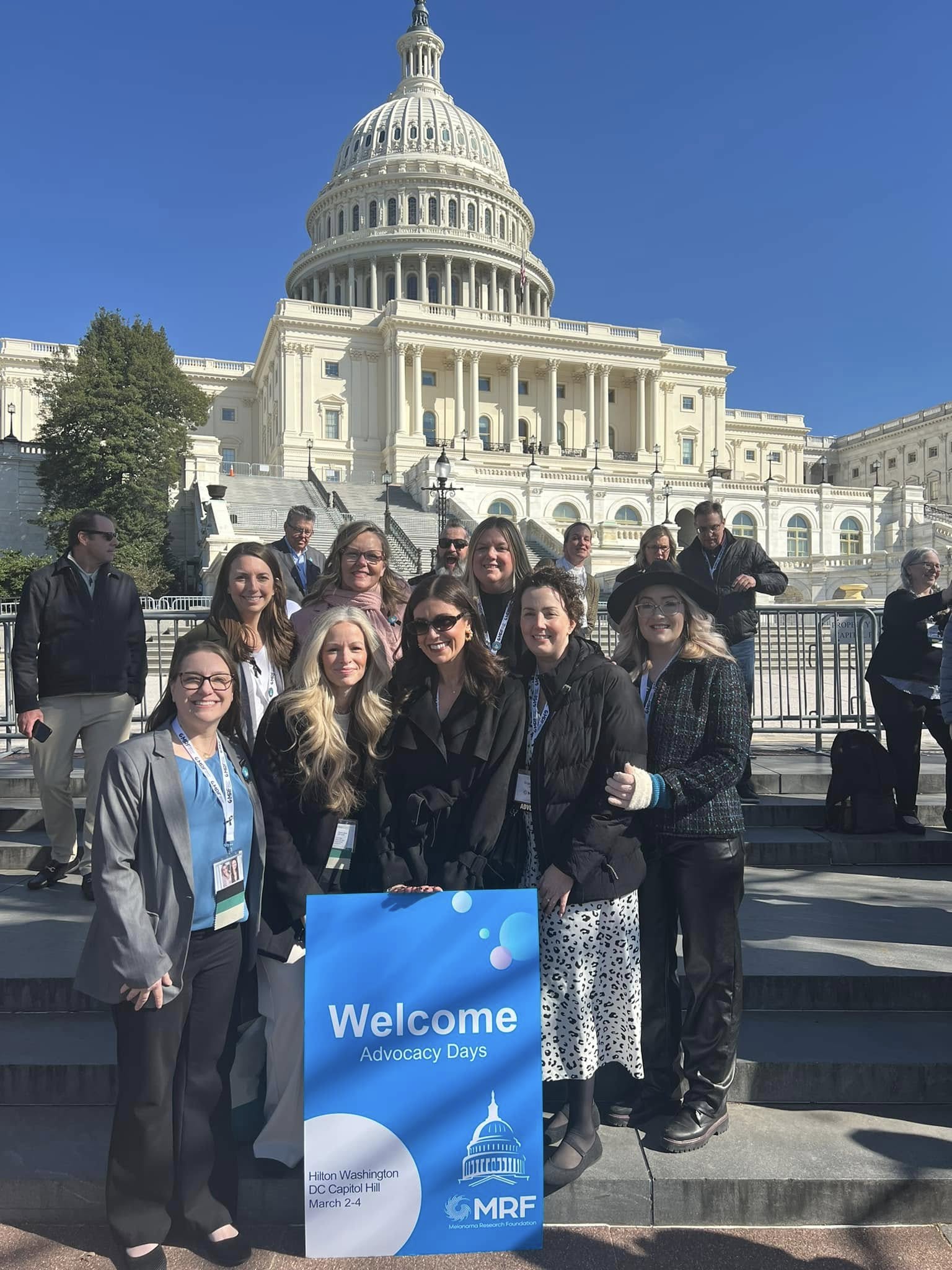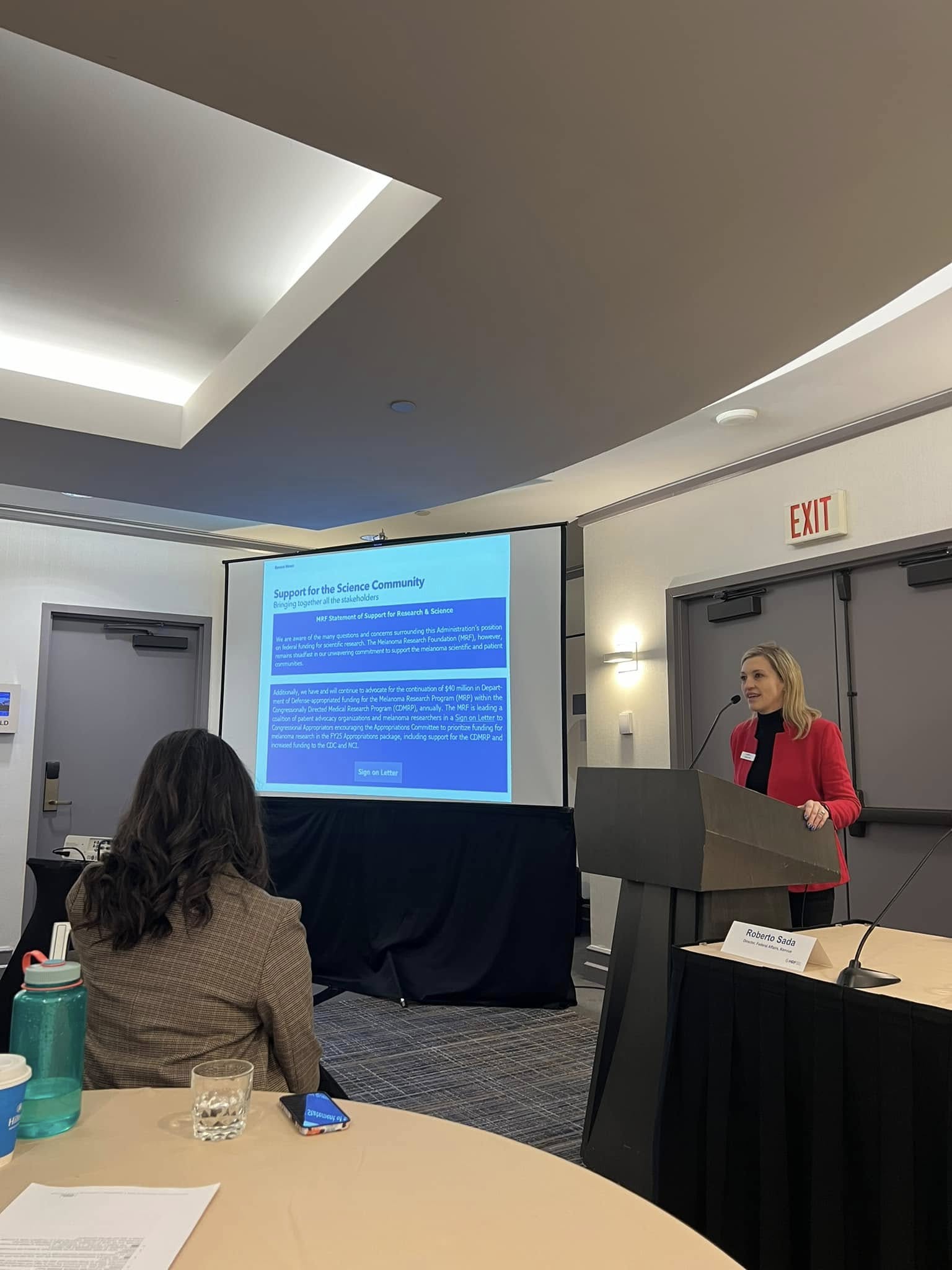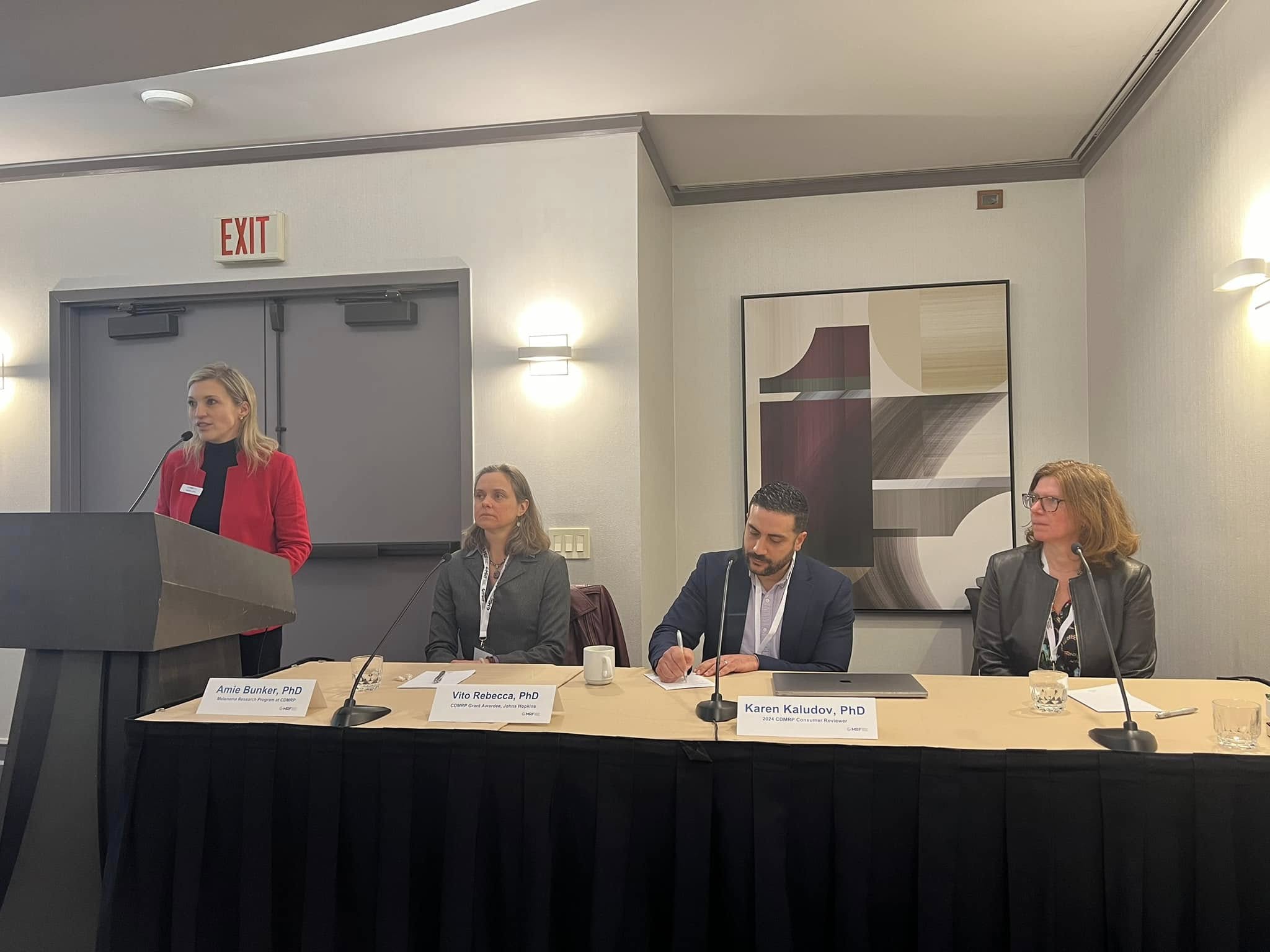January 27, 2025
Advocacy
Access Priorities.
According to Healthy People 2030, inadequate health insurance coverage is one of the largest barriers to health care access, and the unequal distribution of coverage contributes to disparities in health. Out-of-pocket medical care costs may lead individuals to delay or forgo needed care (such as doctor visits, dental care, and medications), and medical debt is common among both insured and uninsured individuals. Vulnerable populations are particularly at risk for insufficient health insurance coverage; people with lower incomes are often uninsured and minorities account for over half of the uninsured population.
The MRF works on the state and federal levels to protect and expand access to care for patients with all forms of melanoma, including the rare subtypes like ocular, mucosal and pediatric melanoma.

Medicare/Medicaid
Hundreds of thousands of Americans with melanoma rely on both Medicare and Medicaid to help cover the costs of their patient care. Despite this, there are several issues facing these programs that require attention.
Medicare
Medicare is a federal insurance program that primarily serves older Americans above the age of 65, in addition to younger individuals with disabilities and patients on dialysis. It consists of Original Medicare, Medicare Advantage, and Medicare Part D. Original Medicare includes Medicare Part A and Part B, which assist with coverage of inpatient hospital expenses (including care in a skilled nursing facility, hospice care, and some home health care) and outpatient medical expenses (including certain medical supplies and preventative services), respectively. Medicare recipients pay deductibles and monthly premiums for non-hospital costs. Medicare Part D helps cover out-of-pocket prescription drug costs. Medicare Part C is the Medicare Advantage Plan, which offers an alternate way of receiving Part A and Part B coverage, in addition to prescription drug coverage offered under Part D. Several different Advantage plans exist, and prices vary depending on the plan’s network of coverage.
Medicaid
Medicaid is a state-run public insurance program for low-income Americans of every age. Typically, Medicaid recipients pay no out-of-pocket costs for medical expenses, although small co-payments are sometimes required.
Medicare and Medicaid are important because they help insure society’s most vulnerable. The MRF encourages advocates to take action by joining the MRF in working to improve Medicare and Medicaid services for the millions of Americans with melanoma and other life-threatening diseases.

Pre-Existing Conditions
The term “pre-existing condition” describes a health condition that existed prior to an individual’s enrollment in a health insurance plan. This includes conditions like diabetes, lupus, sleep apnea, epilepsy, COPD, and cancers like melanoma.
Prior to the passage of the Affordable Care Act, an insurance company could review insurance applications and determine whether to offer coverage at inflated rates or deny coverage altogether for Americans with pre-existing conditions.
According to the Centers for Medicare & Medicaid Services (CMS), 50 to 129 million non-elderly Americans have some type of pre-existing condition. Affordable healthcare for these Americans will be in jeopardy if the Affordable Care Act is ever repealed. Without the protection of the Affordable Care Act, patients already dealing with the constant stress of expensive medical bills for melanoma treatment may be denied insurance coverage or be charged more for these services.
The Affordable Care Act has cut the uninsured rate by almost half, dramatically reduced racial and socioeconomic disparities in healthcare access, ensured out-of-pocket cost protections, and expanded Medicaid. It has kept small business insurance premiums low during a time of economic crisis. And crucially, it has served the melanoma patient community by protecting Americans with pre-existing conditions and providing more affordable healthcare.

Clinical Trials
Clinical trials are an important option in the treatment plans of thousands of Americans facing life-threatening diseases. In addition to being the best clinical option for many, clinical trials collect valuable data in the development of therapeutics that can be used to improve patient care for people with cancers like melanoma, among other illnesses.
Despite the advantages of clinical trials to both patient care and the medical community, access to these trials is limited. The Clinical Treatment Act, which directed Medicaid to cover direct costs associated with participation in a clinical trial, passed at the end of 2020 as part of the Consolidated Appropriations Act and went into effect on January 1, 2022. However, indirect costs such as travel expenses and childcare remain a barrier to accessing clinical trials. As a result, hundreds of thousands of Americans cannot afford to even consider clinical trials as a possibility in their treatment plan.
Roughly 75 million low and modest-income Americans are insured by Medicaid, which remains the only major insurance assistance program without a federal mandate to cover routine costs associated with clinical trials.
- Routine costs, as defined in the bill, include non-experimental costs including physician visits and laboratory tests. Under S. 4742/H.R. 913, the cost of the investigational therapeutic would still be covered by the sponsor of the clinical trial.
- Studies have shown that no significant Medicaid expansion would be required on the state level to cover these routine costs. These costs would normally be covered in a non-clinical trial setting.
- Medicaid recipients include people of minority groups and diverse ethnic backgrounds. Diversity is crucial to ensure that data collected in clinical trials is valid and generalizable

Telehealth
The Melanoma Research Foundation (MRF) represents patients with both common and rare types of melanoma and strives to advocate effectively for both populations while honoring the unique needs of each patient community. Of particular concern to melanoma patients is their ability to receive or continue receiving care from healthcare specialists not located within their immediate geographic area as the number of providers who specialize in rare melanomas, such as ocular or mucosal melanoma, is small and concentrated in large academic medical centers.
However, even cutaneous melanoma patients face challenges accessing dermatologists, particularly due to workforce shortage issues within that field of medicine. According to data from our ocular melanoma VISION Registry, 40% of ocular melanoma patients travelled over 50 miles to receive an official ocular melanoma diagnosis, 60% of ocular melanoma patients traveled over 50 miles to receive treatment, and 50% of ocular melanoma patients traveled over 500 miles to receive treatment for metastatic disease. As a result, the MRF encourages Congress to consider the solutions that telehealth flexibilities provide with regards to accessing teledermatology or specialized oncologists capable of providing innovative care for the rare disease community from the privacy and comfort of a patient’s home when doing so is appropriate for that patient’s care.
The MRF encourages Congress to consider the ways that failure to implement permanent telehealth flexibilities would disrupt ongoing patient care.

Utilization Management
In seeking treatment and other medical services, most patients are confronted with the burden of utilization management. Utilization managements tools, such as prior authorization, are leveraged by health plans to control spending and improve the quality of patient care. Instead, these programs have ostensibly become a way for insurance companies to delay the delivery of healthcare services or deny treatments with little transparency.
Prior authorization ostensibly enables health plans to reduce unnecessary care by requiring healthcare providers (HCPs) to get approval for medical services. In most cases, it is a cumbersome process of days-long negotiations between physicians and insurance companies – during at which time patients could be receiving what may be time sensitive, lifesaving care. Not only is it the primary administrative burden identified by HCPs, but nearly 3 out of 4 enrollees of Medicare Advantage are continuously subjected to unnecessary delays.
The MRF supports utilization management reform and prior authorization reform.




